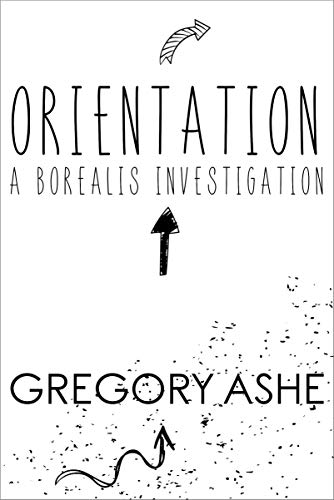They were honest with each other—honest in ways that only people who have known each other for a long time, loved each other for a long time, can be. But what Shaw wanted to say, what he couldn’t quite put into words, was that the honesty between them was, in its own way, also a kind of lie. He wanted to tell North that their honesty glided across smooth water, but that there was an ocean of things below the surface, things they never said. [Triangulation, p. 39]
I read the first of these three novels (
Orientation) free via Kindle Unlimited, and then bought the second and third (
Triangulation and
Declination) and carried on reading without a break.
North McKinney and Kingsley Shaw Wilder Aldrich (North and Shaw) have been friends since college, despite very different backgrounds and personalities. North's family is working-class; Shaw's is monied. North is taciturn, macho, comes to work with bruises from boxing: Shaw is flamboyant, loves to 'process' everything, writes fanfic, and does yoga. (In both characterisations there's an unexpected flipside.) Both North and Shaw are gay: North is married to another of their college friends, Tucker, while Shaw occasionally dates but doesn't have relationships. Their friendship is powered by snark, banter and a profound loyalty. And they are -- as quickly becomes apparent, partly due to dual narratives -- desperately in love with one another, but believe (with some justification) that it's hopeless and unrequited.
North and Shaw run Borealis, a detective agency in St Louis, which I learnt is one of the most dangerous cities in North America.
Orientation opens with the arrival of a new client, the young and attractive Matty Fennmore, who tells them he is being blackmailed. Investigations reveal a complex web of extortion, corruption and deceit -- and put pressure on North and Shaw's friendship, relationship and business.
In
Triangulation, Borealis' secretary Pari asks for help: her girlfriend's boss, a former 'gay conversion' worker now running an LGBTQ+ support centre, has gone missing. North and Shaw -- whose relationship has changed considerably since the beginning of
Orientation -- discover links to a cold case: the attack that left Shaw mentally and physically scarred, seven years before, and killed his first boyfriend. And there are some unpleasant revelations to come.
Declination is where it all comes apart, or possibly together. The various cases and rumours coalesce; the relationship between North and Shaw enters its endgame; the stakes are higher than before, and so are the potential gains.
I immersed myself in these three novels over the course of a lockdown weekend. North and Shaw are vividly characterised: I liked them both, and found the sexual and emotional tension between them very convincing. Their investigations are twisty enough to keep the attention, without overshadowing the emotional developments (between the two, and between each man and secondary characters: partners, North's family, contacts in the police department). I enjoyed the social complexities of the LGBTQ+ community as depicted here, brunches and theatre and drag contests and a brief interlude in a BDSM club. There's plenty of sharp social observation and witty (if occasionally close to the bone) dialogue, and even minor characters are, in the main, given depth.
(Warning: there's some pronoun confusion in the third book, on the part of the characters and possibly the narrative, when a secondary character declares themself to be non-binary. "Ze glanced at them and shook his dark curls." (
Declination, p. 15) It doesn't feel like deliberate misgendering, though.)
Not traditional romance, perhaps: both North and Shaw have relationships with other people over the course of the three books; they are not great at communicating; and there are scenes where one is verbally or emotionally cruel to the other. But the gradual development of their relationship was delightful, and I especially liked North's profound and seldom-spoken appreciation of Shaw's 'quirky' personality.
While gleaning links for this review, I note there is a book of short stories too: which I have just purchased!












